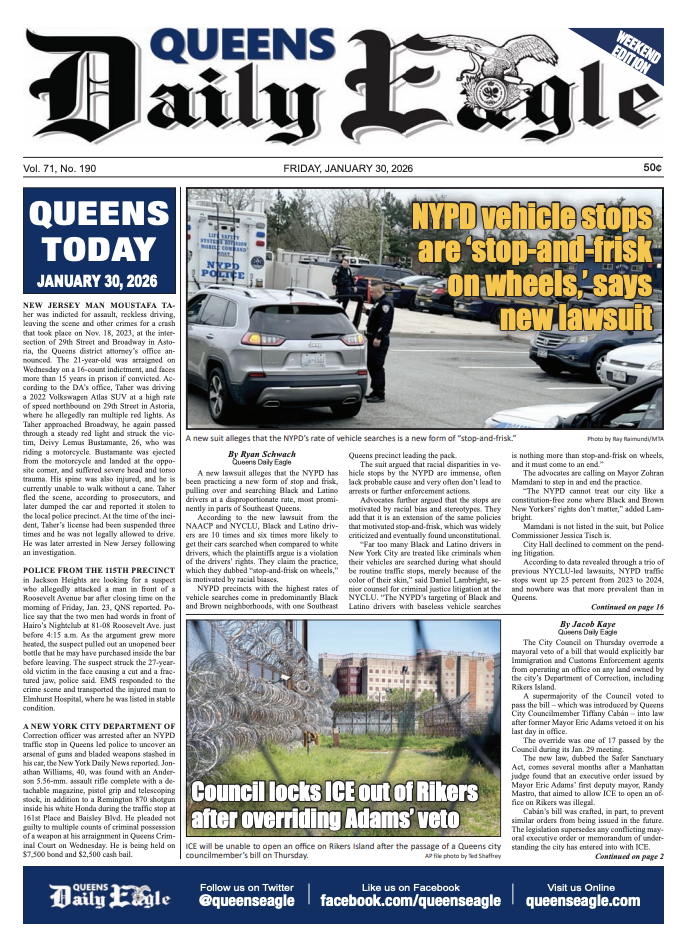In Jackson Heights, living rooms become ‘mask factories’ as neighbors pitch in
/A batch of masks sewn by Jackson Heights resident Katie Cole for children in foster care and agency staff. Photo courtesy of Katie Cole
By David Brand
The coronavirus shutdown has forced Judy Newland to take a break from her day job sewing costumes for performers at the Metropolitan Opera. So she’s making masks for a nonprofit that serves foster kids instead.
“My living room has turned into a mask factory,” Newland said Friday. “It makes me feel involved in what’s happening and I’m helping my community. It’s a win-win for everyone involved.”
Through Jackson Heights’ growing mutual aid network, Newland connected with Stephen Hammer, the director of education at SCO Family of Services. Hammer runs a team of essential workers who need to wear the masks to protect themselves and the children they visit in foster care and family shelters.
On the first day of duty, Newland gathered her scrap fabric and made 10 masks for Hammer to pick up. He thought she was finished. She wasn’t.
“I said, ‘I’m on the wagon. I’ll do as many as you need,’” she told the Eagle. “I said, ‘In your wildest dreams, how many do you need?’ And he looked at me sheepishly and said, ‘I have a staff of 200.’”
So Newland put needle to thread, churning out eight to 10 masks a day for the essential family workers.
Jackson Heights community leader Nuala O’Doherty Naranjo delivers groceries, meals and other items to neighbors in need as part of the Covid Care Neighborhood Network. Photo courtesy of Nuala O’Doherty Naranjo
Katie Cole, another Jackson Heights resident, has also put her sewing skills to use during the COVID-19 crisis. Cole has been sewing adult and child-sized masks “assembly-line” style in her home, she said.
People who sew “always have a stash of scrap material, so its recycling,” she said.
Newland and Cole are two of the dozens of Jackson Heights residents who have gotten involved in the community’s mutual aid network — an informal neighbors-helping-neighbors group known as the Covid Care Neighborhood Network.
The initiative, one of several mutual aid nodes in the borough, was organized by community leader Nuala O’Doherty Naranjo.
O’Doherty Naranjo is a candidate for Assembly District 34, but she has shifted her campaign operation to help isolated neighbors in need. She began printing flyers to let people know they could reach out for help or companionship, and she recruited neighbors to bolster the Covid Care Neighborhood Network.
“We get a lot of calls, ‘Can you check in on me, can you talk, can we chat,’” she said. “Many of our elderly neighbors feel so isolated right now.”
The first caller asked her to deliver a thermometer, O’Doherty Naranjo said. Another neighbor asked her to pick up an IV for a dying cat.
“Most are older people who are terrified to go out,” she said. “Most had relied on local senior centers for food and don’t know how to connect with them.”
Seniors without internet access are particularly isolated, she said. In the weeks and months ahead, they will need more extensive services. “The next stage is how are we going to set them up with long term support,” she said.
Lilian Lamarque, 81, is one of the seniors benefiting from the Covid Care Neighborhood Network. When Lamarque’s daughter learned about the aid network on Facebook, she got in touch with O’Doherty Naranjo, who connected her with her own daughter, also named Nuala.
The younger Nuala now delivers home-cooked meals to Lamarque at her home in Roosevelt Terrace.
“Nuala is a great cook, oh my gosh,” Lamarque said. “Yesterday she made the most delicious beef stew I have ever had. Today she made risotto pasta, rice with butternut squash and all kinds of very healthy vegetables, feta cheese. And she baked her own bread.”
Lamarque, a senior center volunteer, said the isolation has so far felt like “a bad dream,” but she has managed keep herself occupied. She has also played her own part in the informal support network by checking in with her neighbors.
“I can’t go out, I have to be careful,” she said. “But I do yoga, I pray, I always keep my mind busy, I read, I find out about things. And wherever I can recommend or help someone, I do it.”





